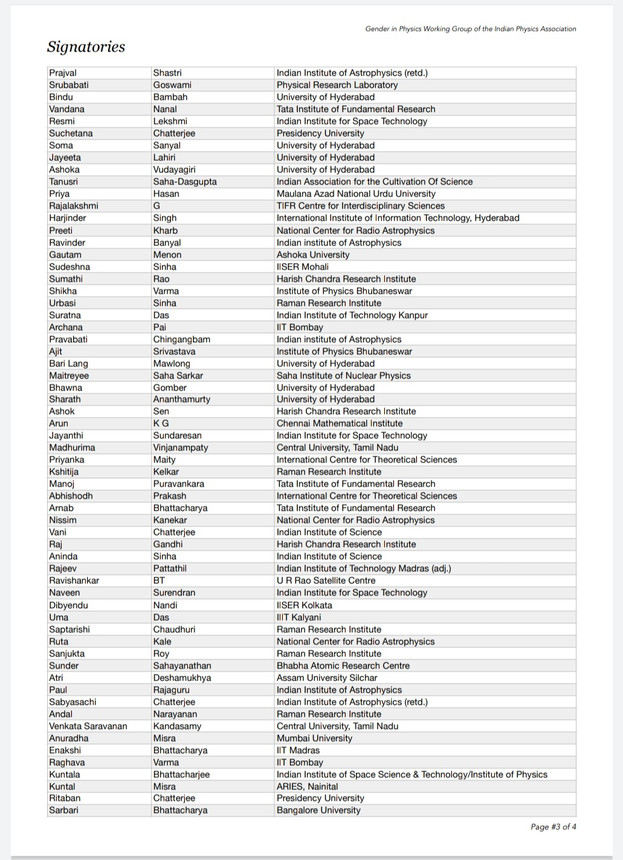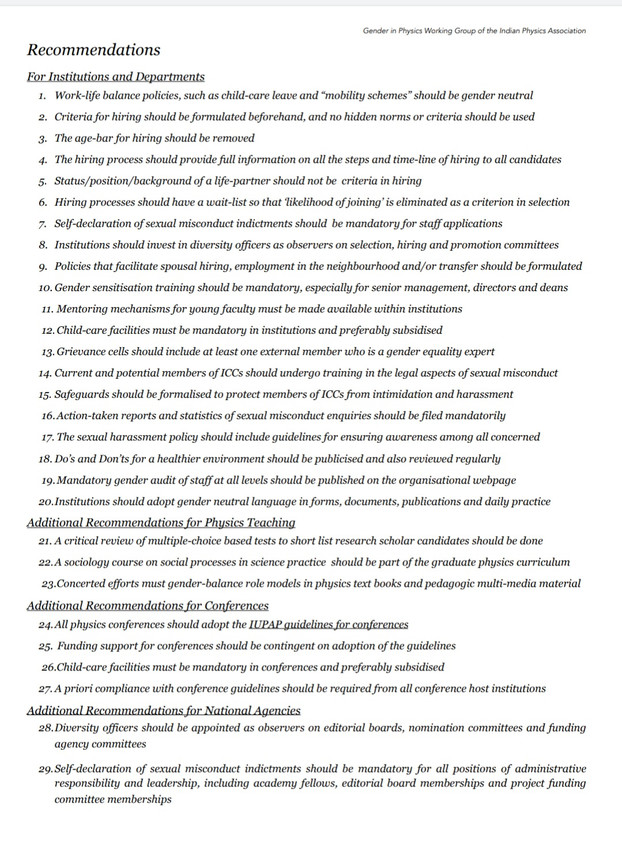‘Clear signature of bias’: Scientists seek gender equity in physics
Pritha Roy Choudhury | March 9, 2020 | 01:38 PM IST | 2 mins read

NEW DELHI: A group of scientists have drawn up a list of recommendations to address the “gender gap” in higher research in physics.
The 29 recommendations are part of the Hyderabad Charter for Gender Equity in Physics which was submitted to the Department of Science and Technology (DST) on Women’s day, March 8, 2020.
It was prompted, as the charter document says, by the wide gender disparity in physics. It says: “The physics profession has among the largest gender gaps. The fraction of women with PhDs in physics who are employed in tertiary education countrywide is just 20 percent, far less than in, say, biology. That fraction plummets to 10% and lower in the elite research institutions, in leadership positions and in honours lists.”
The recommendations are for institutions and departments, physics teaching, conferences and national agencies.
The Recommendations
The charter, signed by 62 physicists from universities and research institutions across the country, includes recommendations such as gender-neutral “work-life balance policies, such as child-care leave and “mobility schemes””; removing the age-bar for hiring; mandatory gender sensitisation training “especially for senior management, directors and deans”; and mandatory and “preferably subsidised” child-care facilities in institutions.
‘Seriously impacts scientific productivity’
A statement released by the Gender in Physics Working Group of the Indian Physics Association, says: “There is wide acknowledgement by the government that the gender disparity in the sciences seriously impacts scientific productivity and excellence and should therefore be urgently addressed. The physics profession has among the largest gender gaps. The fraction of women with PhDs in physics who are employed in tertiary education countrywide is just 20%, far less than in, say, biology. That fraction plummets to 10% and lower in the elite research institutions, in leadership positions and in honours lists.”
The statement further points out that “existing studies have found neither a systematic competence deficit nor a productivity deficit among women scientists compared to men scientists”. The scientists acknowledge that “familial responsibilities may contribute to the gender gap” in the sciences but argue that this does not explain the large difference in the participation of women in biology and in physics. This difference, they argue, is a “clear signature of bias in the selection processes”.
Prajval Shashtri, an astrophysicist who chairs the Gender in Physics Working Group, said that the recommendations “are an outcome of our work over three years and the deliberations at the conference” organised last year at University of Hyderabad. It was a “first-of-its-kind inter-disciplinary conference on Gender in Physics last year”.
Here is the full list of signatories:

Also read:
- ‘Astronomy just happened’ to first woman to head Astronomical Society
- Women’s Day: How many young Indian women work and where?
Write to us at news@careers360.com.
Follow us for the latest education news on colleges and universities, admission, courses, exams, research, education policies, study abroad and more..
To get in touch, write to us at news@careers360.com.
